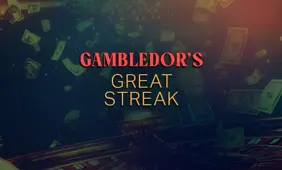The Thin Line between Deception and Cheating in Poker

I’ve written a great deal about cheating and advantage play, but a line must be drawn between legitimate deception, deceit, and outright cheating in poker. The problem is that there’s a blurry middle ground where players can bend the rules without seeming to break them while clearly playing outside of the intended ethics of the game.
There is an important distinction between poker and casino table games where players are betting against the house rather than each other. With table games, players are free to act within the rules and take any advantage available to them through the normal course of play. In Blackjack, there is card counting, track shuffles, or even secretly gaining information if, for example, the dealer unintentionally exposes their hole card; roulette players can search for biased or predictable wheels, and baccarat players can beat the house for millions of dollars if their cards have an inherent flaw in their back design.
House games benefit from an unbeatable mathematical edge, and the price for that edge is that the house must protect their own games; any failure to do so might offer a potential advantage play to observant players, and this type of “player versus house” deception is fair game, in my opinion.
Collusion and Angle Shooting: Unethical Practices in Poker
Poker is more a game of skill where deception is essential to succeed against other players who bet against each other, using skill and experience to secure an edge (and hopefully a profit) over time. Poker players in live games should learn to protect their hand (and their bankroll), but there’s a big difference between spotting a blackjack dealer’s unintentionally exposed hole cards and leaning over to sneak a peek at your neighbor’s pocket pair!
I recently saw a player doing this repeatedly on a live stream and then making ridiculous calls based on having peeked at his opponent’s cards. It’s true that the victim bears some responsibility, but the cheating asshole beside him wasn’t just glancing over and getting an accidental eyeful of aces; he was leaning and timing his actions to get an angle that he didn’t have from his normal seating position. This is much the same as blaming the victim for being seen through their upstairs window by a peeping Tom who had to climb a ladder to see anything at all! It was deliberate, conscious, and he lied about it after his victim stormed off, knowing something was wrong.
What shocked me most, in the aftermath of this incident, was that the commentators almost excused this ploy because they seemed to conflate a player accidentally exposing his cards with a cheater sneaking a peek at those same cards and leaning back to give your opponent’s cards the “side-eye” is exactly the same as putting a camera, a mirror or a trained Chihuahua on the table.
Here’s an expert opinion: If another player can see your cards without trying and you expose those cards to them, you are at fault, but if the offending player must physically move their position in order to spot your hand from an atypical perspective, then they are cheating, and they know it. It’s a gutless, scumbag move by gutless, scumbag players, and the poker industry needs to step on this behavior when it is so blatantly obvious.
Similarly, when players collude, they break the rules of the game by seizing an unbeatable advantage. Whether signaling their hands, dumping chips on each other, or just putting the squeeze on other players. In the past, I’ve played against not just two but three players working together, and it’s almost impossible to beat that kind of foul play in the long run.
Of course, collusion is hard to prove, even when players are apparently playing out of the same pocket on a streaming game. Most “plausible denial” is pretty implausible in these circumstances, yet these scams continue because there’s a reluctance to confront this kind of behavior.
Protecting the Integrity of Poker
It’s not always a sure thing that cheating has occurred.
I recently saw a player accused of making calls way above their skill level, with many believing they were receiving signals about the cards being played at a live-streaming event.
Those cards have RFID chips with readers to identify all hands and relay those to a commentator’s booth after a suitable delay to avoid live cheating. If there were two RFID readers under every spot, or if the readers were wired to multiple locations or the software was secretly leaking data, then someone would be able to play with the ultimate marked deck, and perhaps only a forensic investigation might be able to determine exactly what is going on.
Regardless of how - or even IF - this player might be cheating, surely the best remedy would be to permanently remove them from the streaming table. Crazy calls are possible, especially if the player is relatively bad (but lucky), so while I absolutely believe that RFID streaming setups are vulnerable, I also believe illogical behavior is common, especially in poker.
In the event of doubt, why not protect the player and the game from each other?
I see no problem using any means to beat house games if they’re weak, but players preying on each other is - in my opinion - entirely different, and while I have a deep fascination and appreciation for ingenious cheating methods, that doesn’t mean I approve of them.
Regardless of dictionary definitions, deceitful play is not the same as deceptive play, and a distinction must be made between land-based play and live casino online.
Players caught using software to make perfect decisions online should be barred for life, and players actively colluding - if proven - should also be shown the digital door.
I’ll discuss how online cheaters operate another time.
Another form of “almost-cheating” is the notorious “angle shooters” who use not-so-clever ploys during the course of play to influence a desired outcome. A search on YouTube for “angle shooter poker” will find many examples of this - some clearly unethical, others plausible mistakes, but this type of shot is mostly within the rules, if not the spirit of the game.
One especially bad example is of a player who makes the nuts on fifth street and, after his opponent bets, calls “raise” before immediately correcting himself and claiming that he meant to say “call”! In fact, his intention was to deceive his opponent into calling a forced raise (because that’s what he said first), assuming his hand must be weaker than it is.
Fortunately, the table manager had seen this player make the exact same “mistake” under identical conditions (when he had the nuts against a fifth street raise), and while he was only able to enforce his initial bet (a minimum raise), the manager was quite clear that the player’s behavior was an angle and made sure the other player knew this before making his decision.
I won’t name names or link to the clip, but it’s easy to find, and from the perspective of a con artist, I am particularly interested in how the offending player pleads and pretends innocence when he is quite clearly lying through his teeth.
Players on the receiving end of a possible angle might get angry whether they lose money or not, but managers and dealers need to judge each situation on a number of factors. People do make mistakes, so when something “off” occurs, individual character and long-term behavior must be weighed against any one-off incident of questionable play.
This is not the same as indulging in outright cheating or predatory practices against other players. Poker is a fine balance between being a game of chance and a game of skill, but without some ethical factor to accompany the hard rules of the game, all bets are off. When casino or cardroom operators identify a player actively taking an unfair advantage against another, they must remove that player from the game or risk irreparably damaging poker’s reputation.





Review this Blog
Leave a Comment
User Comments
comments for The Thin Line between Deception and Cheating in Poker